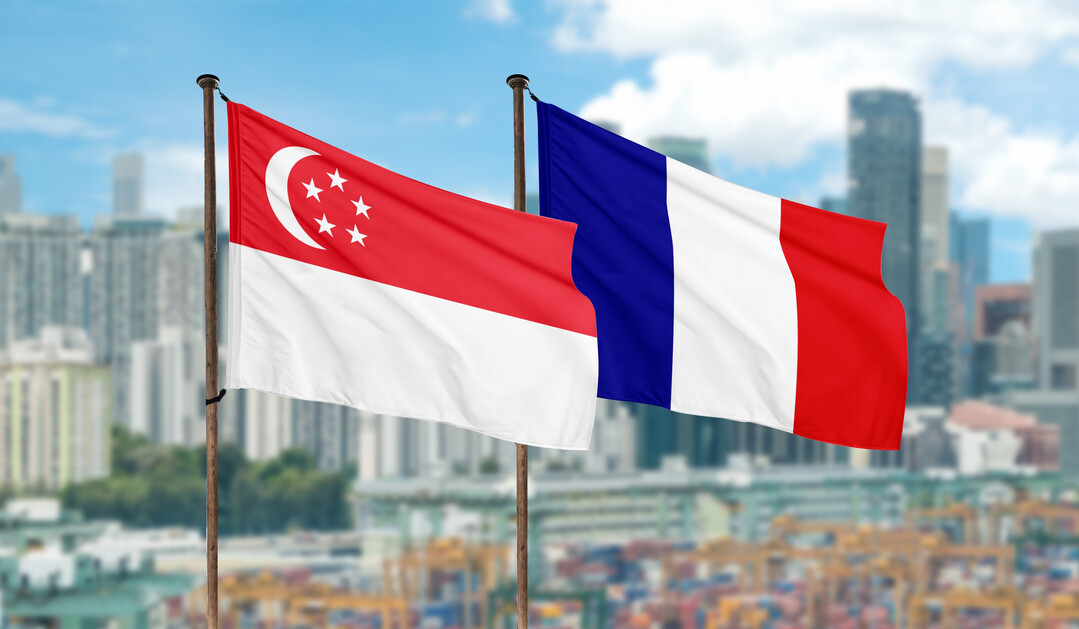
SINGAPORE – In commemoration of their 60th diplomatic anniversary, Singapore and France have elevated their diplomatic relations to a Comprehensive Strategic Partnership, significantly bolstering cooperation in advanced technology fields. During the 'France-Singapore Advanced Technologies Forum' held on June 3 (local time), Singapore's Minister for Communications and Information, Josephine Teo, underscored the deepening ties between the two nations, reaffirming their shared commitment to digital transformation and advanced technology collaboration.
Relationship Elevated to Comprehensive Strategic Partnership: First Among European Nations
Earlier, Singaporean Prime Minister Lawrence Wong and French President Emmanuel Macron announced the upgrade of bilateral relations to a Comprehensive Strategic Partnership. This signifies that France is the first European nation to achieve this status with Singapore, unequivocally demonstrating the deep trust and shared vision between the two countries.
The new partnership prioritizes closer cooperation in advanced technologies such as Artificial Intelligence (AI) and quantum technologies, as well as in trade and defense. Minister Teo emphasized that this elevation reflects the shared goal of both nations to explore innovative emerging fields and strengthen long-standing cooperation.
Singapore Reaffirms Its Status as a Trusted Technology Hub
The forum further highlighted Singapore's strong position as a trusted technology hub. Singapore continues to attract global companies with its stable regulatory environment, robust intellectual property protection, and easy access to regional markets.
Currently, over 2,600 French companies operate in Singapore, leveraging its vibrant innovation ecosystem. France, too, demonstrates a deep commitment to technological advancement, actively announcing over €100 billion (approximately 147 trillion Korean Won) in private sector investment for its domestic AI industry recently.
Specific Examples of Advanced Technology Cooperation
Several notable partnerships were introduced at the forum. French AI company Mistral AI plans to establish an office in Singapore and has signed a Memorandum of Understanding with ST Engineering, one of Singapore's leading companies, to pursue cooperation in applied AI engineering. This collaboration is expected to create synergy by combining Mistral AI's cutting-edge AI technology with ST Engineering's system integration and engineering capabilities to develop AI solutions for practical industrial applications.
Thales, a leading aerospace company, will collaborate with the Singapore Economic Development Board (EDB) and the Infocomm Media Development Authority (IMDA) to explore 5G-Non-Terrestrial Network (5G-NTN) applications. This aims to enhance the responsiveness of AI systems in new scenarios, with the potential to integrate satellite communication and 5G technology to enable seamless operation of AI-driven systems even in areas beyond the reach of terrestrial networks.
Furthermore, Safran, another major aerospace and defense technology provider, will launch CortAIx Center, a global AI accelerator, in Singapore. This center will develop AI solutions for critical environments and contribute to Safran's global R&D network. This exemplifies Singapore's commitment to becoming a hub for global AI research and development, rather than merely adopting technology.
Strengthening Research and Development and Multilateral Cooperation
Research and Development (R&D) also forms a core pillar of bilateral cooperation. Singapore's National Quantum Office and France's National Center for Scientific Research (CNRS) are collaborating in quantum energy and optics. Notably, CNRS will participate in Singapore's National Robotics Program through its center at the National University of Singapore (NUS) CREATE campus, contributing to the advancement of embodied AI research. This joint initiative is supported by an investment of S$20 million (approximately 20 billion Korean Won), fostering active research exchange between the two nations.
Minister Teo reaffirmed the importance of practical and results-oriented partnerships, stating, "We truly believe that through these concrete projects, we can demonstrate the need and ability to reduce our interests and contribute to the real world."
Beyond technological cooperation, both countries expressed strong support for multilateralism. They advocate for open and inclusive trade frameworks, such as the EU-Singapore Digital Trade Agreement (EUSDTA), and Singapore's role within the ASEAN Free Trade Area continues to provide a valuable regional platform for French companies.
Expanding Cooperation in Sustainability and Cross-Disciplinary Fields
Sustainability also plays a significant role in the partnership. Both Singapore and France are strong supporters of the Paris Agreement and are actively working towards a cleaner economy. A notable initiative highlighted was the partnership between French energy company ENGIE and Singapore's public transport operator SBS Transit. This aims to reduce public transport emissions, serving as a good example of their joint commitment to practical climate action.
Minister Teo also expressed appreciation for the increasing cross-sector collaboration between academia, government, and industry, noting, "France has been a valuable partner in this area, and we would like to do more together with France." She cited the increasing momentum in quantum and robotics research as examples of forward-looking joint efforts. This suggests a model that goes beyond mere technological cooperation, aiming for diverse stakeholders to create synergy and drive innovation together.
Minister Teo expressed confidence that Singapore and France will continue to strengthen their relationship by creating an innovative, inclusive, and sustainable future through technology. The elevation to a Comprehensive Strategic Partnership and the advanced technology forum will be an important milestone, demonstrating the strong commitment of both nations to prepare for the future together and jointly address global challenges.
[Copyright (c) Global Economic Times. All Rights Reserved.]






























